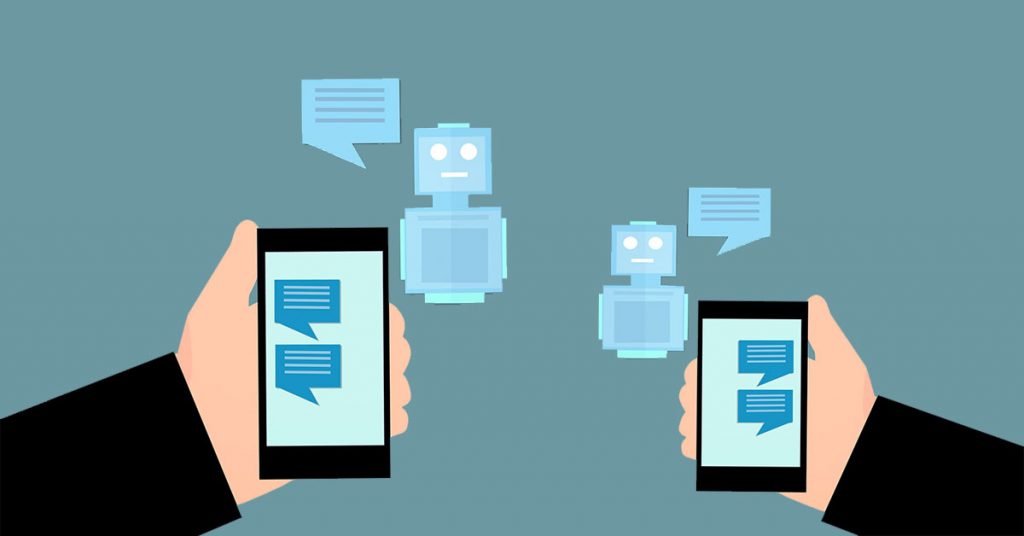The bots are coming…so what does it mean for you?
By Andrew Dunbar | 22/08/2018

For the vast majority of us, interacting with the Internet is a daily part of our lives. Whether it’s checking investment performance, reading the latest news, or making an online purchase, it’s a core part of our day.
For those of you making purchases, you’ve probably noticed a particular trend. If you have booked with an airline or requested a quote from an insurance company online, for example, you’ve most likely had a chat window pop up, offering you ‘help’ throughout the process. It looks and feels like this is a person that’s helping you, but the reality is that it’s most likely a ‘chatbot’. It’s an example of how Artificial Intelligence (AI) is changing the way marketing and the whole online client experience works.
Like all AI, it can seem a little scary, but is it as life changing as some think?
Chatbots are commonplace
While it might feel like sci-fi come to life, it’s very commonplace in business today. Businesses are using these tools to drive the client experience, to make it faster and more efficient.
Like most technology changing the world today, Chatbots are software powered tools, designed to mimic human interactions online through something like social media or a website. The technology has become relatively cheap to engage, meaning that for many businesses it becomes an incredibly cost effective tool.
Where the real strength lies is in the ability to respond quickly to clients. At Apt, for example, we have a rule that we always respond to a client on the same day the enquiry arrives. Chatbots can improve this even further: The response becomes instantaneous, giving you real time information without having to wait for a human interaction. When it’s simple, repeatable answers, this is where Chatbots really provide value. For example, when buying insurance, the question might be “From what date does this insurance take effect?” Simple to answer requests, or FAQ style responses, are perfect for an AI tool.
Where the real debate comes in is the ethics behind it all. Google scared many with it’s recent video showcasing how it’s AI tool, Google Assistant, could not only answer binary enquiries but could also learn and adapt to the answers provided by a human, for example, when making a restaurant booking. In my mind, this might be a great technological achievement, but it does cause you to pause and consider the knock-on effects.
Every industry will be impacted
It would be a case of ‘burying your head in the sand’ to suggest that the financial services industry won’t look at this technology. The banking sector is already using it, as are insurers.
There’s no doubt that financial planners will look at it too, especially for basic website functions. However, for me, the planning process still relies heavily on the human element, the mutual trust and respect built up between the individual planner and the client. It’s crucial to the service we provide and I can’t see it ever being replaced entirely by technology. A recent Deloitte report spells out the same theory. A little like the broader AI discussion, I just cannot see people excluding themselves out of the loop entirely.
What does it mean for you?
Of course, like all technology change, it will impact everyone in some shape or form. There are obvious benefits, for example, faster customer service, that will make a host of areas of our lives more efficient and less time intensive. The counter is in its ability to take away jobs, where terms such as ‘digitisation’ or ‘automation’ can cause real pain.
In the end, it’s not the first time that technology has disrupted the labour market. Like the previous changes, we’ve adapted and kept the human part of our engagements at the centre of what we do. For me, the ‘bots’ might be coming…but it’s not something that should cause you concern!









